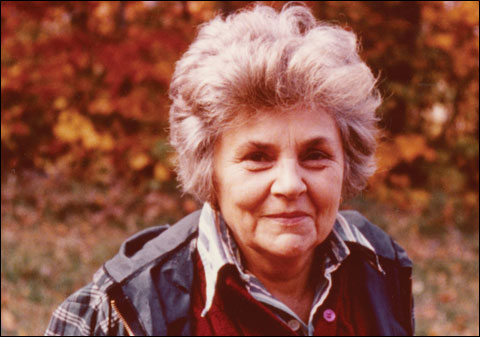
BEYOND THE FUSS If you love Bishop, the New Yorker letters put her work in context - but as always, she shines in her poetry. |
After John Ashbery described Elizabeth Bishop as "the writer’s writer’s writer," reviewers repeated the witticism as if it were true. Actually, beginning with her first book, Bishop got awards and grants — that master poet politician Robert Lowell was in her corner — that gave her much more public recognition than Merrill's phrase suggests was the case. And, thanks to Joelle Biele, we now know the details of her 46-year — 1933–1979 — relationship with the New Yorker. I can't think of another American poet who had a long enough run at the magazine to produce nearly 400 pages of letters between poet and editors. Add to Elizabeth Bishop and the New Yorker new editions of Bishop's poems and prose and it seems that 31 years after her death (and a century after her birth, February 8), she is a popular poet, if there is such a thing today.
Biele's book is promoted as "a rare glimpse of the artistic development of one of the 20th century's most celebrated poets" — which is the sort of boast that would have made the shy Bishop squirm. Of course, she "developed" as a poet over 46 years, but she would have done so in any case. The New Yorker's comically over-fastidious editing played little part in the process. Bishop liked the fact that the New Yorker was distributed in Brazil, where she lived for so many years. And though she liked the care her New Yorker editors gave her work, poets do not develop because of commas and editorial queries. What the New Yorker gave the always needy Bishop was prestige, editorial support, and nice checks.
Readers will have to take that last part on faith, because from the book's opening, in the breezy come-ons and formulaic rejections of editor Charles A. Pearce, there is a hole where money ought to be, and it never gets filled. Pearce sends Bishop checks, but we are not told for how much. We know from other books about the New Yorker that the magazine has always paid well. Why keep Bishop's income a secret? We're told that she signed a "first reading" contract that gave her 25 percent above the going rate per poem published, but without the going rate, this is meaningless. (The 25 percent is Biele's figure, and it seems high. Gary Fountain & Peter Brazeau's wonderful Remembering Elizabeth Bishop: An Oral Biography reports five percent.)
It's simple, really: Americans, even our poets, are too interested in money to have it take up but two sentences in Biele's introduction. I mean, two sentences in which actual figures appear.
Otherwise, Biele's book is only intermittently engaging, at least to this Bishop fan. The best letters — letters based in a real friendship — are between Howard Moss and Bishop. Moss was clearly an intelligent, cultivated man who shared many of her tastes (Chekhov, Keats, Hopkins) and had a sense of humor attuned to hers. He loved her poems — her prose he loved a little less — and he responded quickly. What more can a poet ask for?